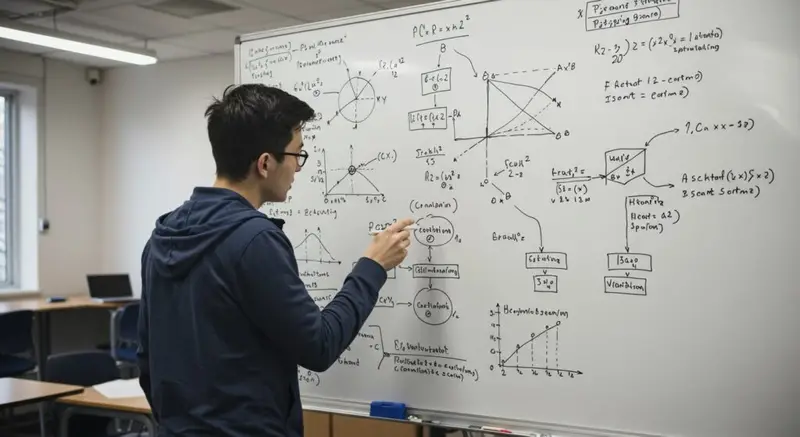Exploring Operations Research at the BSc Level: Foundations and Applications
Operations Research (OR) is an indispensable discipline that employs advanced analytical methods to make better decisions. For BSc students, grasping the operations research basics is fundamental to solving complex real-world problems across various industries. This article will explore the foundational concepts and practical applications of OR at the undergraduate level, preparing you for a future in data-driven decision-making.
Known as the ‘science of better,’ Operations Research utilizes mathematical modeling, statistical analysis, and algorithmic approaches to optimize complex systems. Whether it’s improving supply chains, scheduling production, or managing resources, OR provides the tools to enhance efficiency and effectiveness.
Table of Contents
- What is Operations Research?
- Core Concepts in BSc Level Operations Research
- Practical Applications of Operations Research
- Building Your OR Foundation: Key Skills
- Conclusion
What is Operations Research?
Operations Research emerged during World War II as a way to apply scientific methods to military strategy and tactics. Since then, it has evolved into a powerful management science tool used across various sectors, including business, healthcare, logistics, and engineering. At its heart, OR is about making optimal decisions under uncertainty and constraints.
The Importance of Operations Research Basics
Understanding the operations research basics provides BSc students with a robust analytical toolkit. It teaches you how to think systematically, break down large problems into manageable components, and use quantitative data to inform strategic choices. This foundational knowledge is crucial not just for OR specialists, but for anyone looking to excel in data science, industrial engineering, or business analytics.
Core Concepts in BSc Level Operations Research
At the undergraduate level, several core concepts form the backbone of Operations Research. Mastering these will equip you with versatile problem-solving abilities.
Linear Programming
Linear Programming (LP) is perhaps the most fundamental OR technique. It deals with optimizing a linear objective function, subject to linear equality and inequality constraints. Typical applications include resource allocation, production planning, and diet problems. BSc students will learn to formulate LP problems and solve them using graphical methods or the Simplex algorithm.
Network Models
Network models are used to represent and solve problems involving networks, such as transportation, communication, and project management. Key network problems include the shortest path problem, maximum flow problem, minimum spanning tree problem, and critical path method (CPM) for project scheduling.
Queueing Theory
Queueing theory studies waiting lines, or ‘queues.’ It helps analyze and optimize systems where customers or items arrive, wait for service, and then depart. Understanding queueing models is vital for improving customer service, managing call centers, and designing efficient traffic flow systems.
Simulation
When analytical methods are too complex or impossible, simulation provides a powerful alternative. Discrete-event simulation, for instance, models the behavior of a system over time by tracking events. It’s often used for risk assessment, system design, and performance evaluation in scenarios like manufacturing processes or complex logistical operations.
Practical Applications of Operations Research
The principles of Operations Research are applied daily across countless industries. In manufacturing, OR optimizes production schedules to reduce costs and increase output. In healthcare, it aids in hospital resource allocation, patient scheduling, and epidemic control. Logistics companies use OR to optimize delivery routes, manage inventory, and locate warehouses efficiently. For those interested in the underlying techniques, consider our deep dive into Mathematical Modeling.
Even in finance, OR techniques are used for portfolio optimization and risk management. Governments use it for urban planning, public transport optimization, and emergency response planning. Explore more about the vast field of Operations Research at INFORMS.
| Technique | Common Application | BSc Focus |
|---|---|---|
| Linear Programming | Resource Allocation, Production Planning | Problem formulation, Simplex method |
| Network Analysis | Logistics, Project Management | Shortest Path, Max Flow |
| Queueing Theory | Customer Service, Traffic Flow | Basic queueing models |
| Simulation | System Design, Risk Assessment | Model building, output analysis |
Building Your OR Foundation: Key Skills
Beyond specific techniques, developing a strong foundation in Operations Research requires cultivating several key skills. Analytical thinking is paramount, enabling you to dissect problems and identify their core components. Problem-solving skills, coupled with logical reasoning, allow you to devise effective strategies. Proficiency in relevant software (like Excel Solver, Python libraries, or R) is also increasingly important for implementing OR models.
A solid grasp of mathematics, particularly calculus, linear algebra, and statistics, forms the bedrock upon which OR techniques are built. Critical thinking helps evaluate the assumptions and limitations of models, ensuring practical and realistic solutions.
Conclusion
Operations Research offers a fascinating and highly practical field of study for BSc students. By mastering the operations research basics, you gain invaluable skills for quantitative analysis and data-driven decision-making. These foundations will not only prepare you for advanced studies but also open doors to diverse career paths where optimization and efficiency are highly valued. Embrace the ‘science of better’ and discover how OR can transform complex challenges into actionable insights.


